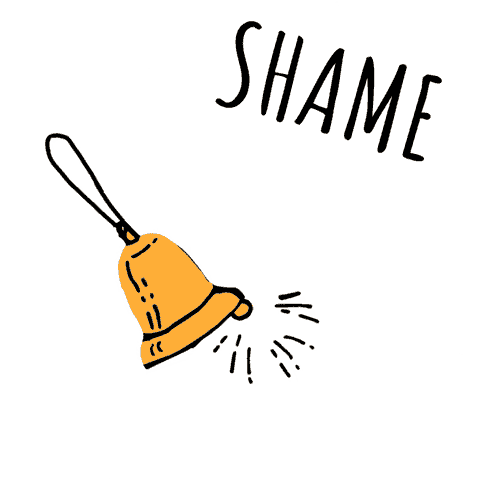CA Med-Legal: How to Appeal Unpaid AME Modifier -94

Regularly, California workers’ comp claims administrators incorrectly deny Medical-Legal Fee Schedule (MLFS) modifier -94 for Agreed Medical Evaluator (AME) services. In this article, we reveal the amount of money AME evaluators lose when the AME fails to dispute these improper (read: false) denials.
We also explain how to appeal these improper AME -94 denials to dispute the incorrect reimbursement.
Medical-Legal providers, it is important to understand that the California workers’ comp appeals system incentivizes claims administrators to improperly deny AME reimbursements. Once a claims administrator refuses to correctly reimburse an AME, the AME evaluator must always dispute the incorrect payment by sending a timely Second Review appeal, and the evaluator must be willing to pay $180 to file for Independent Bill Review (IBR).
Nevertheless, from our extensive experience, AME evaluators that follow these appeal instructions will recover enough funds to outweigh the $180 IBR filing fee, and the administrative expenses incurred due to the grossly lopsided appeals process.
MLFS Modifier -94 for AME Services
Even though California payers 1) refuse to reimburse the provider the $180 to file for IBR, and 2) refuse to pay the mandated self-executing penalty and interest, the financial analysis below reveals that a provider should still always dispute improper reimbursement for AME services.
California CCR Section 9795, generally referred to as the MLFS, outlines the reimbursements for services furnished by Medical-Legal evaluators. According to §9795(d), modifier -94 for AME services multiplies the reimbursement for ML201, ML202, and ML203 by a factor of 1.35 (or 1.45 when reporting ML201 or ML202 and an interpreter is utilized):
-94 Evaluation performed by an Agreed Medical Evaluator. Where this modifier is applicable, the value of the procedure is modified by multiplying the normal value by 1.35. If modifier -93 is also applicable for an ML-201 or ML-202, then the value of the procedure is modified by multiplying the normal value by 1.45. [emphasis added]
The table below outlines AME reimbursements for ML201 through ML203. When a claims administrator denies an AME proper reimbursement, the claims administrator keeps a substantial amount of the evaluator’s reimbursement as guaranteed by the MLFS — unless the evaluator properly disputes the improper payment denial.
The third column, entitled ‘-94 Modifier Increased Reimbursement Amount,’ reveals the exact amount of the AME’s reimbursement California allows claims administrators to withhold by simply (falsely) denying modifier -94.
MLFS Base Billing Code |
NON AME Evaluator Reimbursement (WITHOUT -94) |
-94 Modifier Reimbursement Amount Increase |
Total AME Evaluator Reimbursement (WITH -94) |
ML201 |
$2,015.00 |
$705.25 |
$2,720.25 |
ML201 -93 |
$2,216.50 |
$705.25 |
$2,921.75 |
ML202 |
$1,316.25 |
$460.69 |
$1,776.94 |
ML202 -93 |
$1,447.88 |
$460.68 |
$1,908.56 |
ML203 |
$650.00 |
$227.50 |
$877.50 |
Appealing Incorrect -94 Denials
If your practice is incorrectly denied the increased AME reimbursement under modifier -94, proceed as follows:
Step 1: Second Review Appeal
Within 90 days of receiving the Explanation of Review (EOR) from the claims administrator, submit a Second Review appeal using Division of Workers’ Compensation (DWC) Form SBR-1. We recommend including the following appeal language:
Claims administrator failed to process [ML201, ML202, or ML203] with Modifier 94. Per CCR §9795, [ML201, ML202, or ML203] reimbursement is [amount]. With Modifier 94, the value for the procedure is modified by multiplying the normal value by 1.35, totaling [amount]. [ML201, ML202, or ML203] -94 remaining payment due: [amount]. In addition to payment, penalties and interest are now due.
For an example, see the SBR-1 form daisyCollect recently submitted on behalf of a provider client denied reimbursement for modifier -94 with billing code ML203.
Step 2: Request Independent Bill Review (IBR)
In all likelihood, the claims administrator will decline to remit the disputed amount in response to the Second Review appeal. The only remaining option then is to request IBR from Maximus, the DWC’s designated IBR organization.
First, assemble a compliant IBR request, which must include:
- Completed DWC Form IBR-1
- The final EOR from Second Review appeal, plus all other relevant documentation
- An IBR Index of Documents as specified in the instructions that accompany DWC Form IBR-1
- $180 IBR filing fee (if the provider prevails at IBR, the claims administrator must reimburse the provider the full $180; if the DWC deems the dispute ineligible for IBR, Maximus refunds the provider $132.50)
Important: Submit the IBR request within 30 days of receiving the final EOR in response to the Second Review appeal, and concurrently send a copy of the IBR request and supporting documents to the claims administrator.
On the DWC Form IBR-1, include the same payment, dispute details, and appeal language used in the Second Review appeal, adding an extra page if necessary.
For the example disputed referenced above, daisyCollect submitted the DWC IBR-1 form below, along with the other required documentation:
If the DWC deems the dispute eligible for IBR, and Maximus rules in the provider’s favor, the claims administrator owes the provider:
- The disputed amount, and
- Penalty and interest payments per LAB §4622, and
- The $180 IBR filing fee as required by CCR §9792.5.14
There is no guarantee the DWC will deem a given dispute eligible (even when the dispute is undeniably eligible), nor that the provider will win at IBR. But the inequities of the appeals process notwithstanding, we urge California AMEs to always insist on correct reimbursement, even when the claims administrator plays “IBR Chicken.”
daisyBill makes requesting IBR easier and faster, with tools for quickly completing and assembling the IBR-1 form and necessary documentation. Reach out to see how we can help protect your practice.
CONTACT DAISYBILL
DaisyBill provides content as an insightful service to its readers and clients. It does not offer legal advice and cannot guarantee the accuracy or suitability of its content for a particular purpose.








.png)